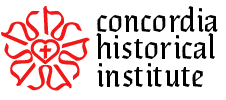715 Saint Gregory II (d. 11 February 731) was consecrated pope.
804 Alcuin of York, English scholar who became advisor to Charlemagne, died (b. ca. 735).
988 Dunstan, Archbishop of Canterbury, died (b. ca. 909).
1382 A synod meeting of Blackfriars, London, to condemn John Wycliffe (mid 1320s–1384) and his followers was shaken by an earthquake. The terrified clergymen fled. This “Earthquake Synod” was led by Archbishop Courtenay and condemned as heretical twenty-four theses from the writings of Wycliffe. Wycliffe later claimed that God sent the earthquake “because the friars had put heresy upon Christ. The earth trembled as it did when Christ was damned to bodily death.”
1547 John Frederick I, Elector of Saxony (1503–1554) signed the Wittenberg Capitulation, which transferred control of the city to the Albertine line of the house of Wettin.
1662 England’s King Charles II (1630–1685) approved a bill requiring all ministers to assent publicly to the Anglican Book of Common Prayer.
1780 This day was uncommonly dark in New England. Some thought the judgment had come. It was probably caused by the eruption of a volcano in Indonesia.
1805 Joshua V. Himes, best known for promoting William Miller’s Second Advent movement, was born (d. 1895). Miller predicted the Second Coming between 1843 and 1844. When this did not happen, many followers deserted; others reorganized themselves as Seventh-Day Adventists.
1840 Frederick G. Baker, composer, was born on the Isle of Wight (d. 1872).
1843 Johann A. Anthes, aka Friedrich K. Anthes, musician and composer, died at Idstein, Germany (b. 2 May 1812).
1854 Johann W. Hey, hymnist, died (b. 26 March 1789, Leina, near Gotha, Germany).
1885 The complete English Revised (E.V. or E.R.V.) Version of the Bible was published in England.
1889 Edward Julius Friedrich was born in Chattanooga, Tennessee (d. 1982). After attending Concordia College (Fort Wayne, Indiana), he graduated from Concordia Seminary (Saint Louis) in 1912. He served as assistant pastor at Immanuel Church (Saint Charles, Missouri) before going to Saint Paul Lutheran Church (Cleveland) in 1923. From 1930 to 1940 he was professor of homiletics at the Saint Louis seminary. In 1940 he was called to serve as the superintendent and chaplain of the Lutheran Sanitarium in Wheat Ridge, Colorado. From 1942 to 1949 he was the president of the Colorado District. In 1949 he became a vice-president of the Missouri Synod.
1914 Thomas Koschat (b. 8 August 1845), Austrian composer, died.
1928 Jonathan Udo Ekong (1881–1982) was sent to the U.S. by the Ibesikbos in Nigeria to seek missionaries for his country.
1936 The African mission of the Lutheran Synodical Conference was opened.
1939 Howard B. Grose (b. 5 September 1851), American Baptist leader and author of the hymn “Give of Your Best to the Master,” died.
1956 Pope Pius XII (1876–1958) condemned artificial insemination as immoral and illicit.
1971 Godspell opened at the Cherry Lane Theater in New York City. The musical by Stephen Schwartz is based on the New Testament Gospel of Matthew.
1994 Morris George Watkins died in Colorado Springs, Colorado (b. 1923). A 1959 graduate of Concordia Theological Seminary (Springfield, Illinois), he served from 1959 to 1964 and 1979 to 1983 in Nigeria and as the founder of Lutheran Bible Translators. He retired in 1988.
2001 Walter William Stuenkel, president of Concordia College (Milwaukee) from 1953 to 1977, died in Green Valley, Arizona (b. 1912). A 1936 graduate of Concordia Seminary (Saint Louis), he received an honorary doctor of divinity degree from the Saint Louis seminary in 1962 and earned a Ph.D. from Marquette University (Milwaukee) in 1966. Stuenkel was the author of six books and Biblical commentaries. He also was involved in training pastors in the former Soviet Union.
2001 Raymond Frederick Surburg, who taught for thirty years at Concordia Theological Seminary (Springfield, Illinois, and Fort Wayne, Indiana), died in Bloomington, Indiana (b. 1909). Surburg joined the seminary faculty in 1960. When he retired in 1990, he was professor and chairman of the department of exegetical theology. Surburg was a 1933 graduate of Concordia Seminary (Saint Louis) and earned two doctorates, a Th.D. from American Theological Seminary (Wilmington, Delaware, 1942) and a Ph.D. from Fordham University (New York City, 1950). Before 1960 he was the pastor of Lutheran congregations in New Jersey and New York
and taught at Concordia Teachers College (Seward, Nebraska).


